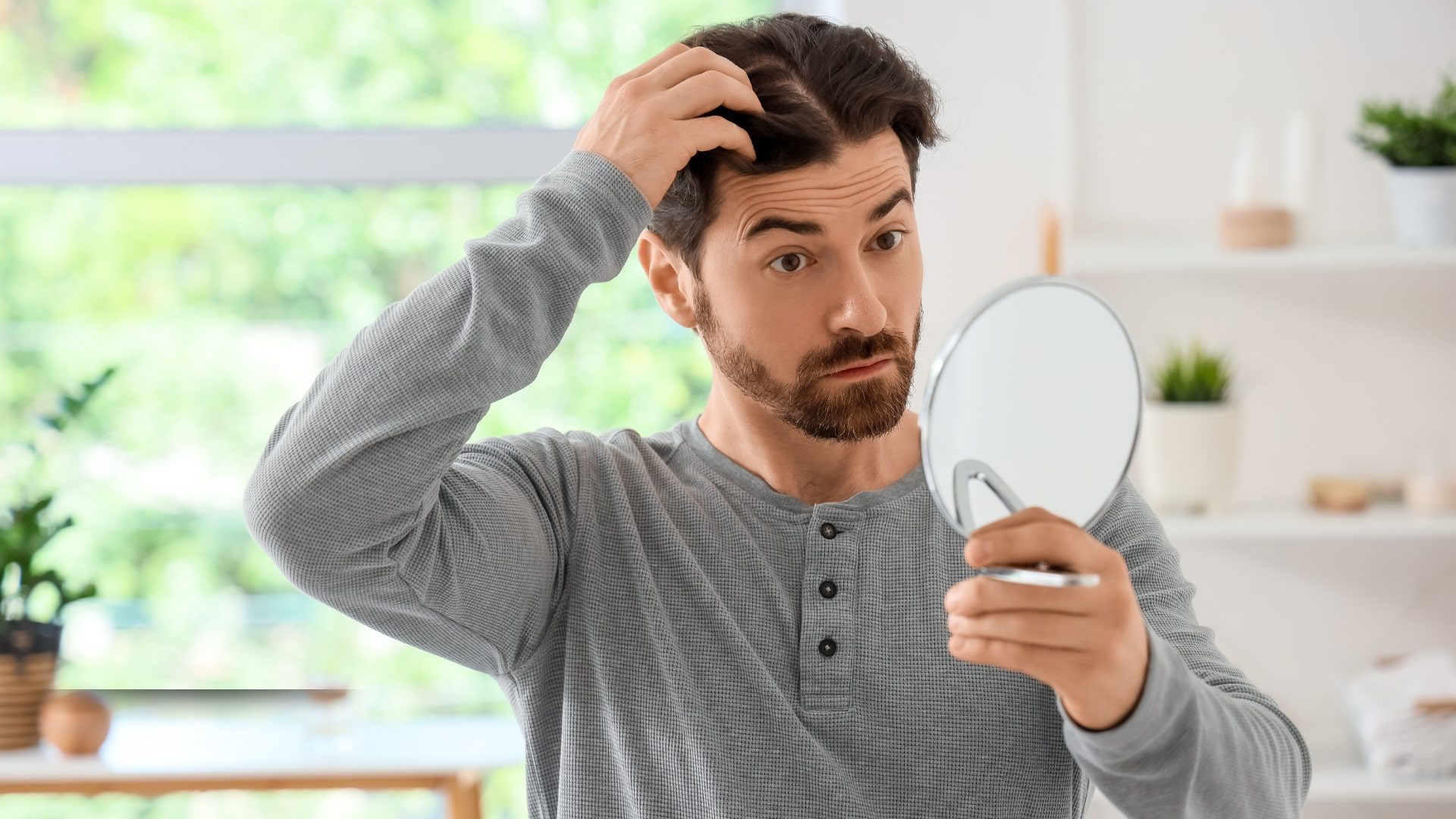
Hair loss in men is one of the most common concerns worldwide. While it can be emotionally stressful, understanding the reasons behind it can help you choose the right treatment. The good news? Many effective solutions—both natural and medical—can slow down hair fall, stimulate growth, and improve scalp health.
Below is a complete guide to help you understand the causes of male hair loss and what you can do to manage it.
Table of Contents
What Is Hair Loss in Men?
Hair loss in men, also known as male pattern baldness or androgenic alopecia, typically begins with hair thinning, a receding hairline, or bald spots on the crown. While genetics is the major cause, several other factors can worsen the condition.
Most men experience some degree of hair loss by the age of 50, but it can start as early as the late teens.
Common Causes of Hair Loss in Men
1. Genetics
The most common cause is heredity. If hair loss runs in your family, you’re more likely to develop it too.
2. Hormonal Changes
High sensitivity to DHT (dihydrotestosterone) shrinks hair follicles, slowing growth.
3. Stress
Physical or emotional stress can trigger sudden hair shedding known as telogen effluvium.
4. Poor Diet
A lack of protein, iron, zinc, and vitamins weakens hair roots and increases shedding.
5. Medical Conditions
-
Thyroid issues
-
Scalp infections
-
Autoimmune diseases
6. Hair Care Mistakes
Overstyling, heat, harsh shampoos, or tight hairstyles can damage hair follicles over time.
Early Signs of Hair Loss in Men
-
Receding hairline
-
Thinning on the crown
-
Excessive hair on pillow or shower drain
-
Widening part line
-
Reduced hair density or volume
Spotting these signs early allows you to start treatment before significant hair loss occurs.
Natural Solutions to Reduce Hair Loss in Men
1. Scalp Massage
Boosts blood flow and strengthens roots.
2. Regular Oiling
Use natural oils such as:
-
Coconut oil
-
Castor oil
-
Rosemary oil
-
Almond oil
These nourish hair follicles and reduce breakage.
3. Balanced Diet
Include:
-
Eggs
-
Fish
-
Nuts
-
Leafy greens
-
Berries
Nutrients like biotin, zinc, and protein help improve hair growth.
4. Reduce Stress
Practice:
-
Yoga
-
Meditation
-
Deep breathing
-
Regular exercise
Stress hormones can accelerate hair thinning.
Medical & Professional Hair Loss Treatments
1. Minoxidil
A topical solution proven to slow hair fall and stimulate new growth.
2. Finasteride
An oral medication that blocks DHT, preventing further thinning.
3. PRP Therapy
Platelet-rich plasma injections strengthen hair follicles and boost regrowth.
4. Laser Therapy
Low-level laser devices improve blood circulation in the scalp.
5. Hair Transplant
A long-term solution for advanced baldness.
Always consult a dermatologist or trichologist before starting medical treatments.
Lifestyle Tips to Prevent Hair Loss
-
Avoid excessive heat styling
-
Choose mild, sulfate-free shampoos
-
Sleep at least 7–8 hours daily
-
Avoid smoking and reduce alcohol intake
These changes support hair health and prevent further thinning.
When to See a Doctor
Seek professional help if:
-
Hair loss is sudden or patchy
-
You have itching, redness, or scalp infections
-
Natural remedies are not helping
-
Bald spots continue to expand quickly
Early diagnosis ensures better results with treatment.
Hair loss in men is common but manageable. With the right combination of natural remedies, lifestyle changes, and medical treatments, you can slow thinning and improve hair growth. Understanding the root cause is the first step, so don’t hesitate to consult a specialist if needed.


